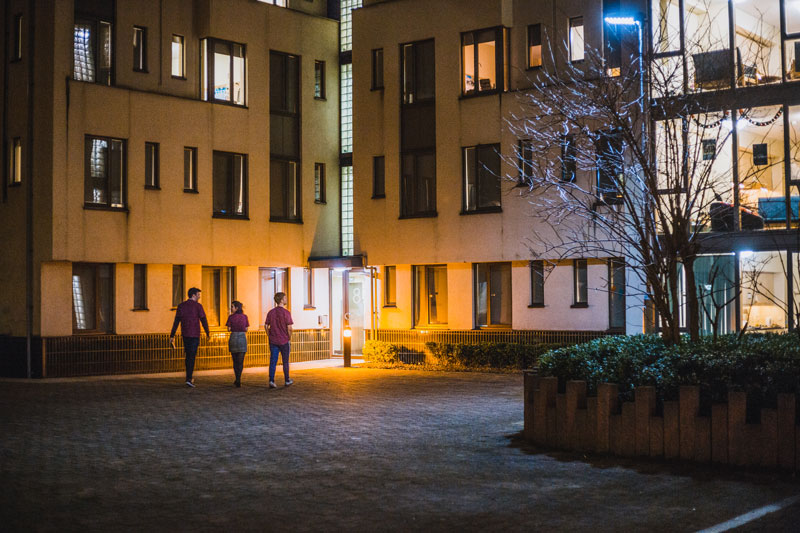Trinity Hall residents will have to self-isolate if a resident of their flat is diagnosed with coronavirus.
Halls residents sharing an apartment will be considered to be members of the same household if one of the flatmates catches the virus.
In an interview with The University Times, Director of the College Health Service David McGrath said that Halls will be akin to a “family home” for students.
“Your family would make up some of the close contacts and the way to look at these apartments where people are sharing a bathroom or shared facilities like kitchens is that they are a family unit and they will be treated as a family unit.”
“If one person develops symptoms they would phone us and we would organise a test and contact tracing.”
“Everybody would have to self isolate in that flat then for a period of time until the tests come back. So we would just treat each one as a family unit in its own individual pod”, McGrath said.
Currently Halls can house approximately 1,000 students, the majority of whom are first years who will have moved away from home.
As College prepares for reopening, top Trinity immunologist Luke O’Neill has advised that College test all staff and students for the coronavirus twice weekly.
In an interview with The University Times, O’Neill said that “the goal is very simple: we don’t want students getting infected in our university, and we don’t want our staff getting infected either”.
“What’s the best way to ensure that? It’s testing and isolating. That’s the best way to – almost – guarantee that.”
At present, Trinity has announced the creation of a coronavirus testing facility on campus. However, this facility will only test people who are showing symptoms.
O’Neill said that “because of the asymptomatic aspect of this disease, you can’t just be testing people with symptoms. You’ve got to really test everybody is the idea”.
Carriers of the virus can still be infectious, even if they are not showing symptoms or are presymptomatic.
O’Neill is advocating for booths or vans to be set up at the entrances to Trinity, where staff and students can be tested as they enter the College.







